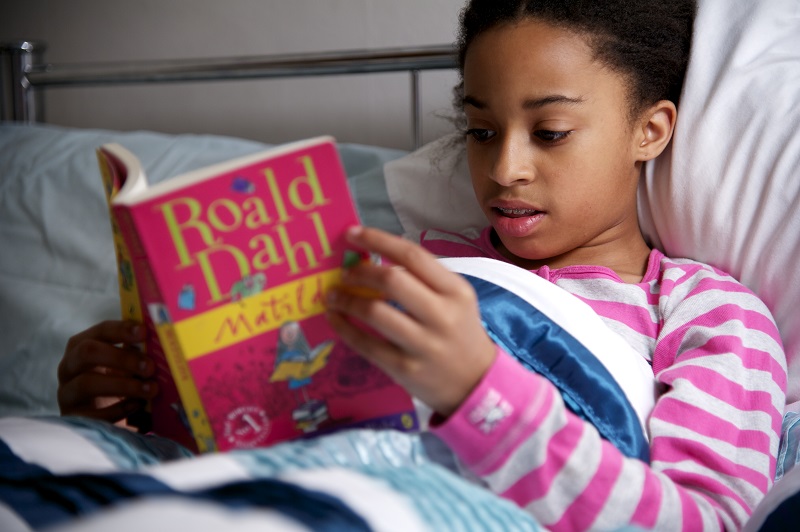Award-winning children’s author Christopher Edge shares strategies for talking to children about their reading
Books can help children and young adults to make sense of the world, provide an escape from it and maybe, one day, inspire them to build a better one, so in these strange times, making space for reading in their lives is vitally important. Reading however can be seen as a private pastime, so finding ways to talk to children about the books they are reading can really help to build their interest in and enthusiasm for reading. From becoming a reading role model to making reading social, here are some ideas for building talk about books into your daily lives.
Be a reading role model
Sometimes it can be difficult to find the time to read and this is as true for children as it is for adults. Modern life is full of distractions, even on lockdown, but by making space to read but also to talk about your reading can help to make any discussion of books with your child a two-way process. By sharing the books you are reading and your thoughts and feelings about these, you can be a reading role model in your children’s lives. This can help them to shape and share their own responses to the books they are reading with you. From discussing your own favourite teenage reads to the books and genres you enjoy now, you can show how reading can be a lifelong pleasure.
Tap into your child’s creativity
Reading is a creative act as we take printed words from the page and turn these into pictures in our minds. Giving your child opportunities to create creative responses to the books they are reading can be a great way of fuelling their passion for reading by combining it with other passions they might have, such as art and music. These creative opportunities might include composing a soundtrack for a scene in a book or using their artistic skills to create an alternative front cover. Give a purpose for more traditional responses such as writing a review by posting this on your child’s behalf on online book retailer’s websites or asking them to create a book blog or video review. This can provide an opportunity to discuss the purpose of reviews and encourage them to reflect on their reading in a more critical way.
Make reading social
In these times we’re all feeling a little alone, but reading can bring us together apart. From listening to live readings from award-winning authors such as Frank Cottrell-Boyce to livestreaming a digital literary festival with events from top children’s and YA authors into your front room there are lots of ways to use books to connect. Many authors are providing free resources on their websites – you can find mine here – to keep readers busy. You could also make book talk a feature of family catch-ups online, asking other members of your family to share the books they are escaping into right now. Or maybe encourage your children to set up an online book club with friends, although you’ll need to provide lots of snacks!
Sharing stories
The pleasures that can be found in children’s and YA fiction can last a lifetime, so maybe you could choose a book to read together. Resources such as Booktrust’s Bookfinder can help you to choose a title you think you’ll both enjoy, whilst their ‘What to Read After’ recommendations can also help your child discover new authors and genres.
Whatever ideas you choose, just by taking the time to take an interest in the books your child is reading you’re giving them the message that reading matters.
